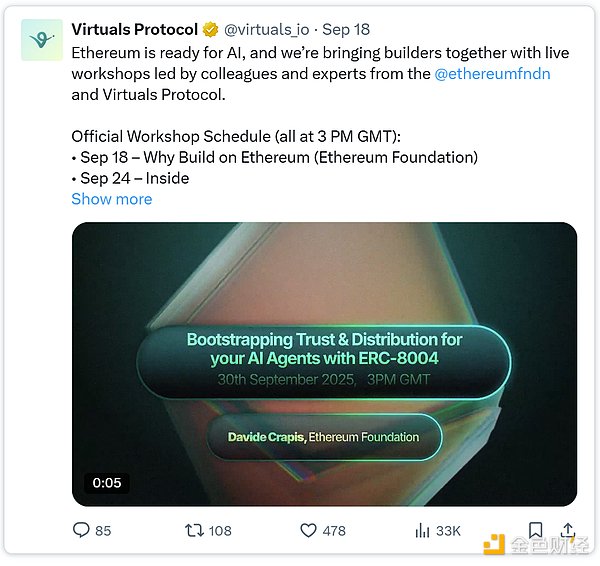Author: Francesco, Castle Labs
Translation: Golden Finance xiaozou
Ethereum’s announcement to double down on its investment in AI and establish a dAI (decentralized AI) team came as a surprise to most.
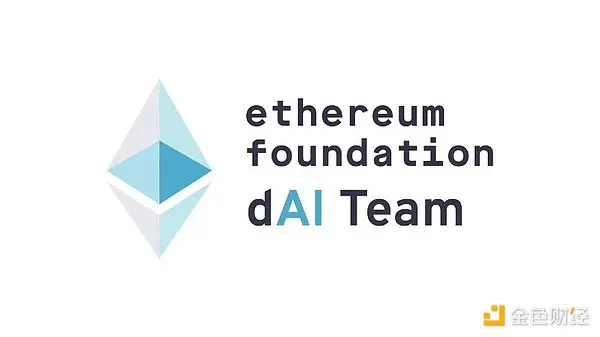 The team, led by Davide Crapis, is dedicated to "making Ethereum the preferred settlement and coordination layer for AI."
The team, led by Davide Crapis, is dedicated to "making Ethereum the preferred settlement and coordination layer for AI."
In practice, the DAI team will focus on two specific areas:
- Infrastructure decentralization: With the rise of AI giants, it is necessary to avoid over-reliance on a few centralized entities and ensure that AI runs on a decentralized technology stack.
- Decentralization of the AI economy: Beyond the underlying infrastructure, there is an urgent need to ensure that execution, coordination, and alignment among intelligent entities are achieved in a decentralized, permissionless, and third-party-free manner.
Two core elements of Ethereum’s unique value proposition are its trusted blockspace neutrality and censorship resistance; therefore, it will be interesting to observe the creation of AI agents that align with these principles.
In the team's official statement, its goal is to "connect two fields that have long been developing in parallel."
By doing so, both parties can achieve mutual benefit and win-win results:
- AI agents become safer, more trustworthy, and more decentralized.
- Ethereum becomes the primary settlement layer, ushering in a new era of efficiency led by AI agents.
So this is not just another way to release an AI agent…it’s about creating a completely neutral, verifiable, and censorship-resistant agent.
The dAI team will not operate in isolation, but will collaborate closely with the Ethereum Foundation's protocol and ecosystem teams to ensure a lasting impact. This will open up interesting design spaces—AI agents could eventually be entrusted with tasks like asset management and applied to a wider range of use cases.
This initiative has already had ripple effects, and we’re already seeing some signs of this. For example, the dAI team has released a proposal to supplement ERC-8004, which aims to enable a trustless agent architecture.
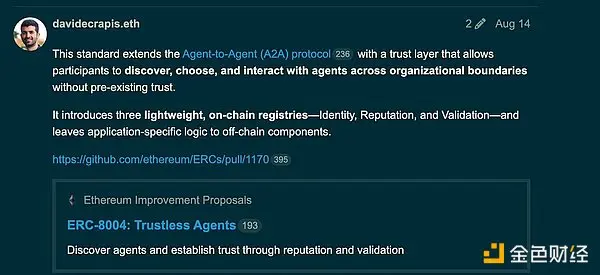
The newly deployed x402 adds native encrypted payment capabilities to Google's recently launched A2A agent communication protocol
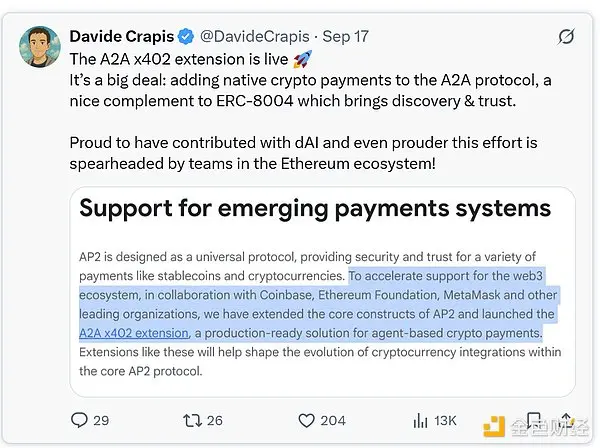 For AI agents, this means:
For AI agents, this means:
- Possess on-chain settlement capabilities
- ERC8004 trustless and verifiable certificate system can be used
- A universal standard for encrypted payments between agents
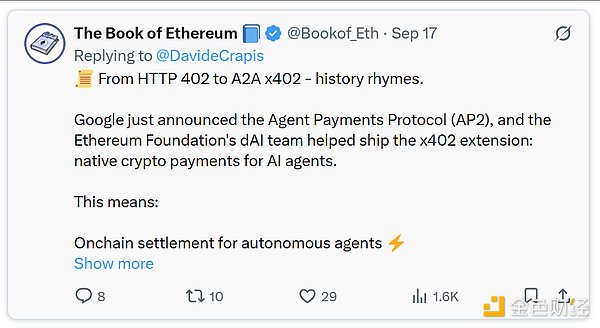
The proposal has received widespread support from ecosystem participants such as MetaMask, which announced close cooperation with Google.
"We believe that unified, interoperable payment standards are critical for intelligent entities to buy and sell digital resources and services."
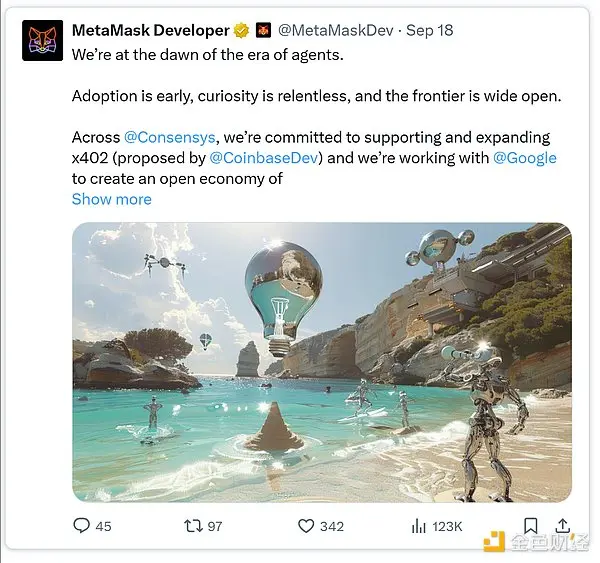
How will MetaMask use this technology?
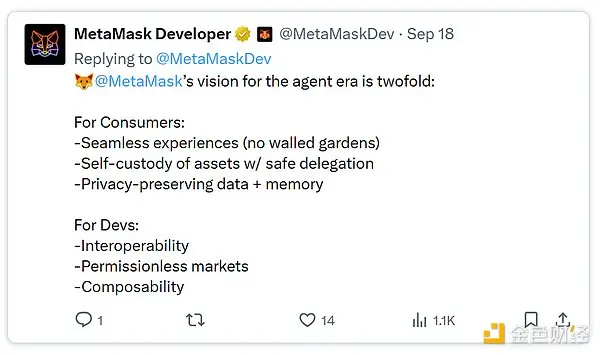
ConsenSys similarly promises to “implement multi-asset, multi-chain, and self-custody-level support for x402 across our product stack.”
There are already examples in place - DINBuild supports "x402 micropayment functionality, enabling intelligent entities to purchase RPC access rights on demand."
Some hackathon projects have begun to build tools around ERC8004.
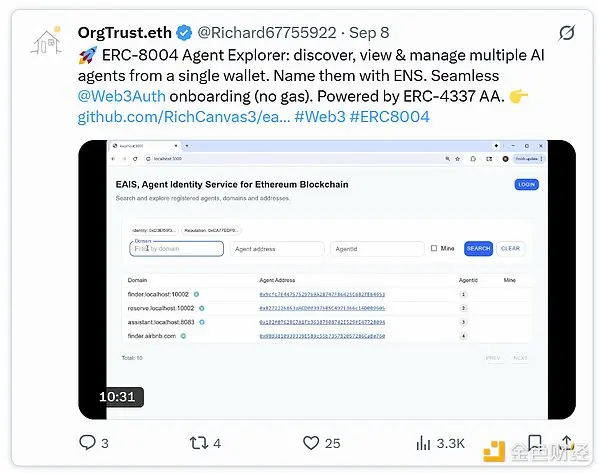 In addition, Ethereum has partnered with Virtuals to launch a series of official workshops for developers and deploy new types of intelligent agents using the Virtual platform.
In addition, Ethereum has partnered with Virtuals to launch a series of official workshops for developers and deploy new types of intelligent agents using the Virtual platform.
